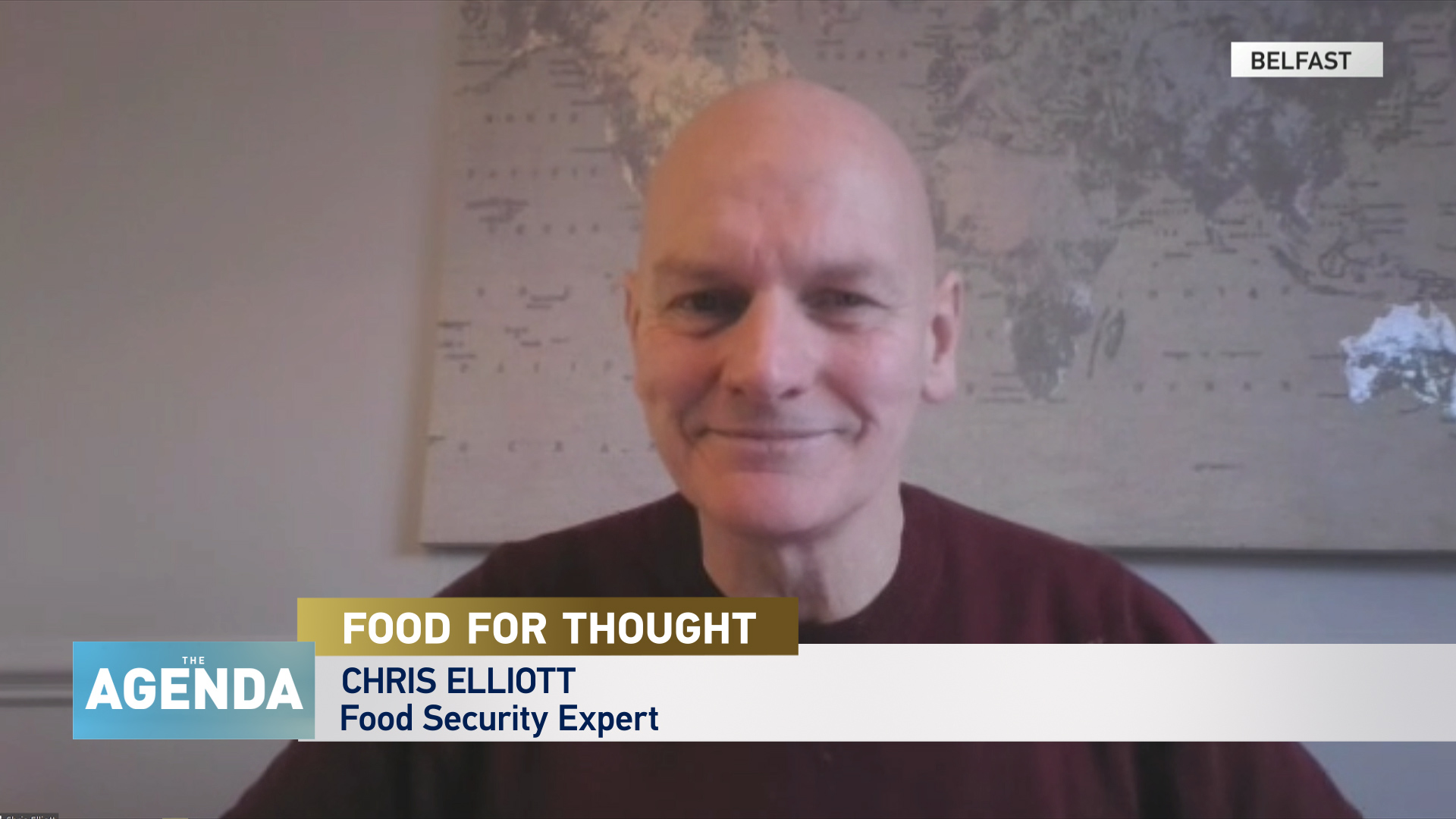08:35

WHAT'S THE ISSUE?
By 2050, there will be two billion more mouths to feed. Currently, the inequitable distribution of nutritious food means people are going hungry in some parts of the world whilst others are growing obese. And then there's the dilemma of our environmental footprint. Increasing extreme weather patterns are ruining crops, dampening the efforts of farmers. If mass production continues, our planet will struggle to cope. So the alternative is for us to rethink our reliance on overseas food and buy locally, which unfortunately brings with it a limited choice.
The Agenda's Stephen Cole speaks to a food security expert who knows all too well about the need for an overhaul of our global food system.

MEET THE EXPERT
Professor Chris Elliott is Founder of the Institute for Global Food Security at Queen's University, Belfast. His job involves identifying problems in the global food supply system, including points of vulnerability.
Professor Elliott coordinated one of the world's largest research projects in detecting agri-food chemical contaminants.
He also led the UK government's independent review of food systems following the 2013 Horse meat scandal.

WHAT DOES PROFESSOR ELLIOTT SAY?
When asked if the UK and Europe are prepared enough for future food demand, Chris Elliott says the UK just isn't ready:
"If we think about those extra two billion mouths, it is a huge challenge and we're doing that against the backdrop of climate change and massive issues about sustainability. So in the context of the UK, I personally say we are not in a particularly good place.
"About one billion people are currently undernourished, but there is more than enough food produced in the world to feed a billion people. There are massive issues about the quality of our global food supply system. We waste about a third of all that we produce."
On whether or not we need to de-globalize our food systems and pay more attention to food miles, Professor Elliott says more awareness and transparency is needed:
"Quite often we don't know what we eat, we don't know where it comes from (or) how it's being produced. Why should we possibly think that we can eat strawberries 365 days a year? The environmental footprint of us eating strawberries in November, December, January is shocking because they have been transported very, very long distances.
"So getting back to eating local food produced at different times of the year should also be part of what we think about in terms of a sustainable food system."


ALSO ON THE AGENDA
- Sally Poon, a personal dietitian based in Hong Kong tells us how to eat healthily during lockdown and some advice for vegans.
- We visited one of the most famous Chinese restaurants in London and talked to the manager John Man about the role of food in Chinese culture.

